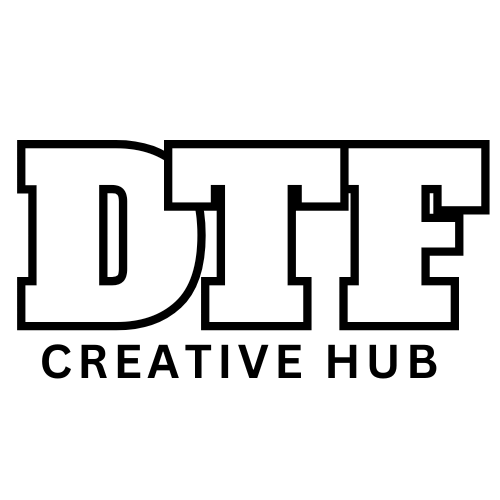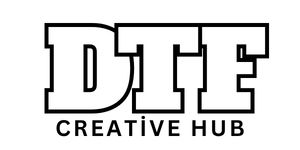Georgia DTF Trends 2025 is a window into how Georgians are talking about the future of technology, data, and everyday digital life. This article treats the Digital Transformation Framework as a lens to understand Georgia’s evolving digital ecosystem in 2025. By unpacking trends, debunking Georgia digital transformation myths, and comparing perceived challenges with real opportunities, we explore how Georgia’s digital conversation in Georgia shapes decisions at the state and local levels. Designed for residents, business owners, educators, policymakers, and tech enthusiasts, it delivers clear, actionable insights that align with Georgia digital trends 2025 and draw on Georgia tech insights 2025. As Georgia accelerates digitization in public services, commerce, and education, the discussion centers on responsible, equitable, and effective Georgia technology adoption 2025.
From an LSI perspective, the topic is reframed as digital modernization and the state’s data strategy, with Georgia DTF Trends 2025 serving as a guiding frame rather than a single headline. You’ll encounter related concepts such as Georgia digital evolution 2025, Georgia broadband expansion, and the broader technology adoption journey shaping everyday use. The emphasis shifts toward practical implications—cybersecurity, privacy-by-design, data governance, and scalable solutions for small businesses, schools, and local governments. This framing uses synonymous terms to deepen understanding of Georgia digital trends 2025 and related considerations, while maintaining a focus on inclusive access and responsible innovation. In short, the same momentum is described through new language to support readers and search engines alike.
Georgia DTF Trends 2025: A Roadmap for Connectivity, Literacy, and Everyday Tech
Georgia DTF Trends 2025 isn’t just a headline; it’s a window into how Georgians talk about the future of technology, data, and daily digital life. The Digital Transformation Framework (DTF) serves as a blueprint that connects broadband, privacy, data stewardship, and digital skills with real community needs across cities and rural areas. In the context of Georgia digital trends 2025, this framework highlights how connectivity, education, and inclusive access lay the groundwork for a more productive economy and more responsive public services.
As you explore the state’s digital journey, you’ll see practical steps taking shape: skill-building programs in schools and workplaces, partnerships between educators and industry, and policies that encourage safe experimentation with new platforms. These moves translate high-level tech talk into clear actions, aligning technology investments with outcomes such as faster service delivery, better citizen experiences, and stronger local governance. Georgia tech insights 2025 helps stakeholders interpret signals and prioritize initiatives that work in Georgia’s particular context.
Demystifying Digital Transformation Myths in Georgia
“Georgia digital transformation myths” is a recurring phrase in discussions about modernization, often paired with gadget envy or hype. The reality is more nuanced: transformation is about processes, governance, and people, not simply new devices. In Georgia, successful DTF work blends technology with workforce development and outcome measurement to move beyond buzzwords.
Addressing myths also means clarifying data privacy, consent, and risk. The digital conversation in Georgia benefits from transparent storytelling that links privacy by design with user trust and practical benefits in schools, clinics, and government services. Understanding Georgia digital transformation myths helps residents and businesses stay grounded while pursuing innovation.
Georgia technology adoption 2025: From Policy to Practice
Policy plays a critical role in Georgia technology adoption 2025, translating bold goals into procurement standards, cybersecurity requirements, and pilot programs. The discussion spans broadband expansion, cloud services, and data analytics that inform smarter decisions at local and state levels.
Adoption on the ground requires people: training for the workforce, guidance on ethical AI, and scalable pilots that demonstrate real value. Georgia technology adoption 2025 becomes sustainable when communities can measure outcomes, reduce costs, and improve service delivery through analytics, customer-centric digital channels, and robust cybersecurity practice.
The Digital Conversation in Georgia: Stakeholders, Partnerships, and Local Impact
The digital conversation in Georgia brings together residents, schools, startups, government agencies, and regional partners. This ecosystem supports shared pilots, knowledge transfers, and co-investment that can accelerate digital maturity while managing risk. Local voices—from urban centers to rural towns—shape the priorities and pace of change in meaningful ways.
Georgia tech insights 2025 illuminate how regional clusters form around universities and industry, turning research into practical tools for everyday life. When regionally connected, Georgia’s communities benefit from faster adoption, better job opportunities, and smarter public services that reflect local needs.
Georgia Tech Insights 2025: Innovation Clusters, Ecosystems, and Regional Growth
Georgia tech insights 2025 points to an expanding map of innovation clusters, with Atlanta as a hub and many spreading pockets across the state. These clusters grow through cross-sector collaboration, talent development, and supportive infrastructure that nurtures startups and incumbent firms alike.
Practical outcomes include improved connectivity, smarter data use, stronger cybersecurity, and broader access to digital tools in education, health, and commerce. The result is a more resilient Georgia digital trends 2025 landscape—one where policy, partnerships, and people align to sustain inclusive growth and measurable benefits for residents and businesses.
Frequently Asked Questions
What is Georgia DTF Trends 2025 and why is it important for residents and businesses?
Georgia DTF Trends 2025 is a Digital Transformation Framework that guides how Georgia uses technology, data, and online services in 2025. It links broadband expansion, privacy, digital literacy, and workforce development to real community outcomes—faster services, smarter decision‑making, and greater access for all. By translating high‑level tech talk into practical steps, it helps residents, businesses, educators, and policymakers navigate the digital era. The focus on Georgia digital trends 2025 anchors ongoing improvements in everyday life.
How does Georgia technology adoption 2025 influence small businesses and public services?
Georgia technology adoption 2025 emphasizes thoughtful deployment of AI, automation, and cloud analytics, with strong emphasis on building local skills and responsible use. It highlights capacity‑building, cybersecurity, and clear governance so technology saves time, reduces costs, and improves services in public and private sectors. The approach aligns with the Digital Transformation Framework to ensure benefits reach small businesses, schools, and communities across the state.
What are common Georgia digital transformation myths, and how does the Georgia DTF Trends 2025 framework address them?
Myth 1: Digital transformation is only about gadgets. Reality: It’s about changing processes, measurement, and people. Myth 2: If you build it, they will come. Reality: Adoption requires training and local champions. Myth 3: Data is only for big enterprises. Reality: Small businesses can leverage data literacy. Myth 4: Privacy blocks progress. Reality: Strong governance enables innovation with trust. Georgia DTF Trends 2025 frames these myths as addressable through governance, training, and inclusive, practical strategies.
What does the digital conversation in Georgia look like in 2025, and how can communities participate?
The digital conversation in Georgia 2025 centers on inclusive access, partnerships, and responsible innovation. Communities can participate through pilots, regional innovation hubs, and collaboration between schools, industry, and government. The Digital Transformation Framework guides policy and practice to ensure privacy, security, and equitable opportunities while accelerating digital services.
What insights do Georgia tech insights 2025 offer for educators, startups, and policymakers?
Georgia tech insights 2025 highlight regional innovation clusters, university–industry collaboration, and scalable pilots. For educators, startups, and policymakers, they offer guidance on education‑to‑workforce pipelines, data‑informed decision making, and ethical technology adoption. These insights help align technology adoption 2025 with outcomes that improve lives across Georgia.
| Topic | Summary | Notes / Examples |
|---|---|---|
| What is the Digital Transformation Framework (DTF) in Georgia? | DTF is a blueprint that aligns technology investments with community needs, coordinating broadband expansion, digital literacy, privacy and security, and support for small to mid-sized enterprises to deliver measurable outcomes like faster services and better decision-making. | Georgia DTF Trends 2025 frames how tech choices serve people and places across the state; emphasizes outcomes and responsible implementation. |
| Trend 1: Broad and equitable connectivity | High-speed internet is foundational and intersects with schools, telehealth, remote work, and local business needs, creating a reliable digital backbone for Georgia. | Focus areas include rural and urban access, affordability, and digital literacy to ensure everyone can participate. |
| Trend 2: AI, automation, and practical deployment | AI and automation become everyday tools across sectors; emphasizes workforce training, AI ethics and bias mitigation, and selecting applications that enhance accuracy and speed with human oversight. | Georgia technology adoption 2025 highlights preparedness, capacity-building, and responsible automation. |
| Trend 3: Data governance and cybersecurity as shared responsibilities | More data flows across education, government, finance, and commerce increase risks; promotes clear data ownership, transparent policies, robust security, and ongoing risk assessment. | Practical governance and security practices enable insights while protecting sensitive information. |
| Trend 4: Digital equity and inclusive access | A thriving digital economy requires devices, connectivity, and literacy for all Georgians; emphasizes bridging gaps for rural communities, seniors, and economically disadvantaged groups. | State and local initiatives focus on affordable devices, connectivity, and user-friendly training. |
| Trend 5: Public-private partnerships and regional innovation clusters | Collaboration across universities, startups, companies, and government yields scalable solutions; regional hubs benefit from pilots, funding, and shared mentorship. | Local ecosystems accelerate adoption while reducing risk. |
| Trend 6: Ethical technology and privacy protection | Ethics and privacy are design features; privacy-by-design, transparent data-sharing, and clear consent build trust in a data-driven Georgia. | Organizations embed privacy and responsible data practices as core to projects. |
| Myth 1 | Digital transformation is only about new gadgets. | Reality: It’s about changing operations, measurement, and service delivery; technology must be paired with people, processes, and training. |
| Myth 2 | If you build it, they will come. | Reality: Adoption requires ongoing education, support, and local champions; accessibility and UX matter for Georgia technology adoption 2025. |
| Myth 3 | Data is only for big enterprises. | Reality: Data-driven insights help small businesses compete; democratizing data literacy across Georgia’s economy is essential. |
| Myth 4 | Privacy concerns block progress. | Reality: Strong governance and transparent policies enable innovation with confidence; privacy protection and trust are integral to every project. |
| Real-world Implications: Residents | Easier access to online public services, improved telehealth, and digital literacy opportunities that unlock new job opportunities. | Bridging the digital divide improves daily life and participation. |
| Real-world Implications: Businesses | Access to cloud services, analytics, and scalable digital marketing; emphasis on cybersecurity and risk management for sustainable growth. | Adoption supports efficiency, competitiveness, and responsible growth in Georgia-based companies. |
| Policy and Governance | Regulatory frameworks balance innovation with privacy and security; multi-stakeholder collaboration is key. | Georgia’s digital policy landscape evolves through state and local initiatives, partnerships, and guardrails. |
| Practical Steps for Readers | Invest in digital literacy, strengthen cybersecurity in procurement, seek public-private pilots, advocate for equitable device connectivity, and foster ethical tech use. | Empowerment through education and responsible adoption anchors Georgia DTF Trends 2025. |
| Looking Ahead: Road to 2026 and Beyond | Ongoing evolution toward more advanced analytics, broader data governance, and broader stakeholder participation. | Cross-sector collaboration and continuous learning will sustain momentum for Georgia DTF Trends 2025. |

